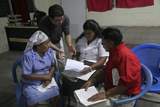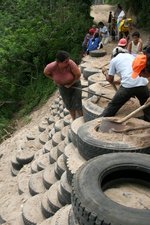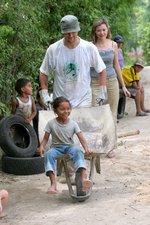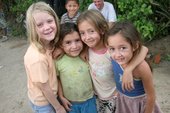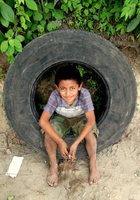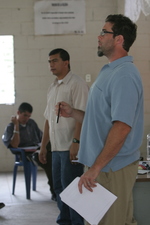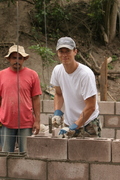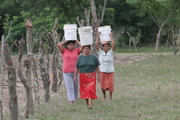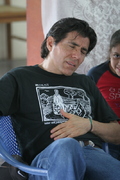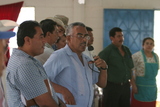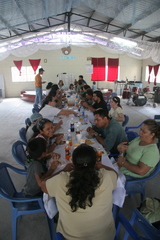Community transformation is a dynamic and continuous process in which people are restored to God and reflect his reign or Kingdom in every area of their lives. Many understand community transformation as the process of change while others focus upon the results or outcomes such as affordable housing, better health or dignified employment . At ENLACE, community transformation is the process in which relationships are restored to God and to each other; a process that enables active participation of all community members under a shared vision to develop responsive institutions and sustainable, poverty alleviating initiatives.

pastor miguel duran of las delicias talking with community leadersIn our experience, community transformation is a slow, arduous, and evolving process. You first see glimpses of transformation in people’s hearts, values, attitudes toward God and to each other which after many years encourages and produces sustainable changes to the conditions of their lives such as dignified housing, employment, and health.
ENLACE discovers the process of community transformation as it occurs in six dimensions or spheres.
Restored relationships : People restored to God and to each other producing a loving, compassionate and just community of servants of God. The community sees each other as children of God, dependent upon God and interdependent upon each other to fulfill his plan for the world. Everyone is restored, called and an active part of fulfilling the purposes of God.
Active participation : A community where everyone participates actively in vision-casting, decision-making, and implementing sustainable solutions that is inclusive, equitable and just. Participation is based upon and encourages the forming and using of gifts and skills given by God to build the entire community.
Shared vision : A vision of the future that is shared by the community, that is realistic and reflects the Kingdom of God. The vision should be developed in open dialog among community members. It should ultimately create a shared sense of identity and purpose.
Servant leadership : Leaders from within the community are committed to listening, learning and caring for the entire community with special care for the most needy. Servant leaders are concerned with the spiritual and personal development of those they serve. Ultimately they strive to create new servant leaders.
Effective institutions : Public and private organizations and churches that respond to opportunities identified by community servant leaders that fit within their shared vision and are implemented in a transparent, just and effective manner. Effective institutions do not impose agendas or programs but try to facilitate and strengthen local initiatives.
Sustainable solutions : Initiatives that are identified and designed by the church and community leaders based upon existing local resources and skills that have a long-lasting impact on the community.
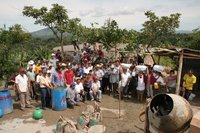
community members volunteering at las delicias water project
click here to donate to ENLACE’s church and community program.

